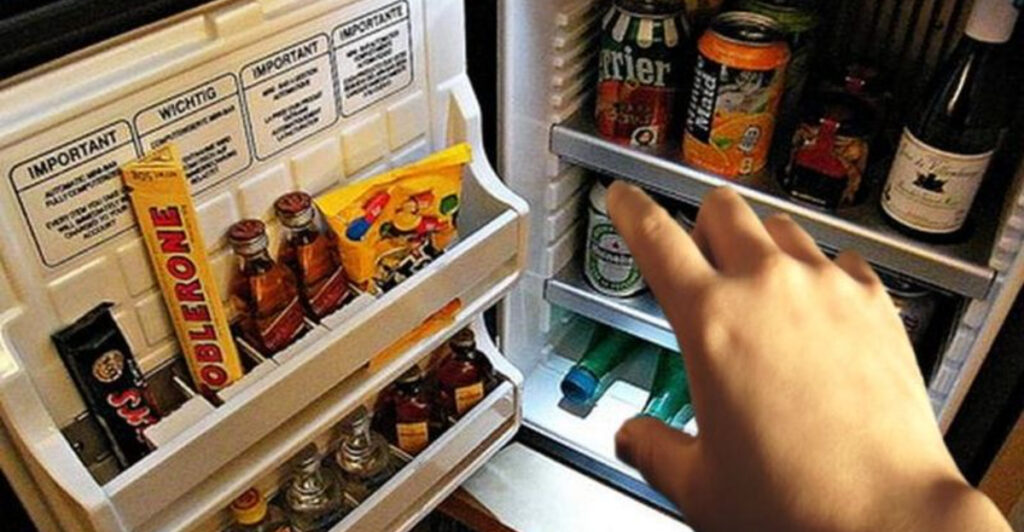Those tiny fridges in hotel rooms hold more power over your brain than you might think. Mini-bars aren’t just about overpriced snacks – they’re psychological traps designed to make you spend. Understanding why we’re drawn to these expensive treats can help you make smarter choices on your next trip.
1. The Forbidden Fruit Effect Makes Everything Irresistible
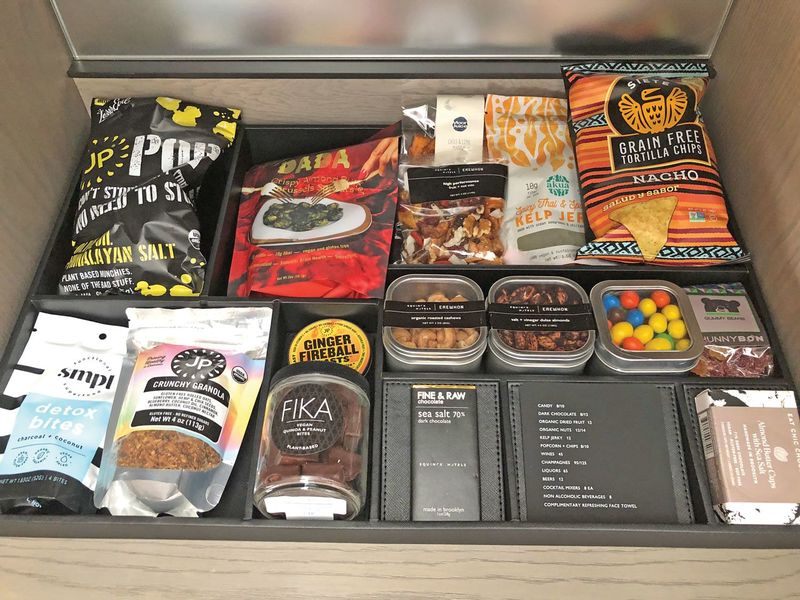
Your brain craves what it can’t easily have. When hotels plaster warning signs about mini-bar charges everywhere, they accidentally make those $8 candy bars more tempting. This psychological trick works because restriction creates desire. The more someone tells you not to touch something, the more your mind fixates on it. Smart travelers recognize this mental game and pack their own snacks instead.
2. Decision Fatigue Turns Smart People Into Big Spenders
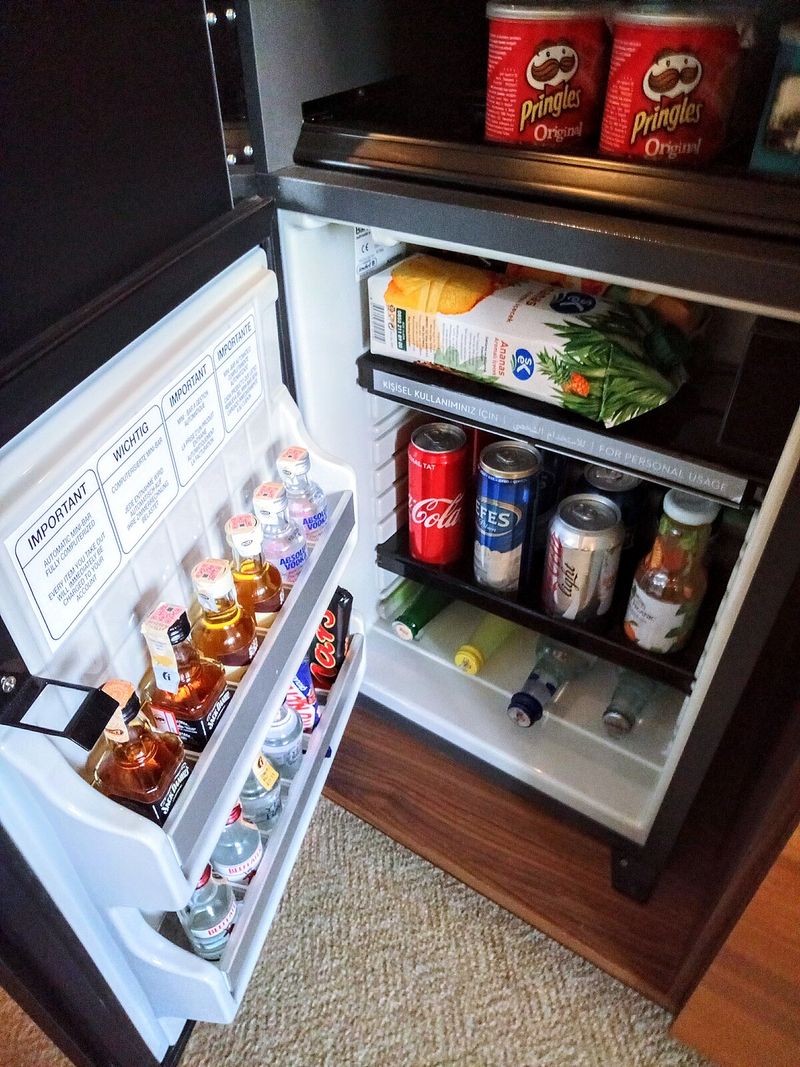
After hours of travel stress, your tired brain stops making logical choices. That $12 soda suddenly seems reasonable when you’re exhausted and the vending machine feels miles away. Travel drains your mental energy for decision-making. Hotels know this and position mini-bars as the easiest solution to hunger and thirst. Rest before making any mini-bar purchases to avoid expensive impulse decisions.
3. Luxury Association Creates False Value Perception
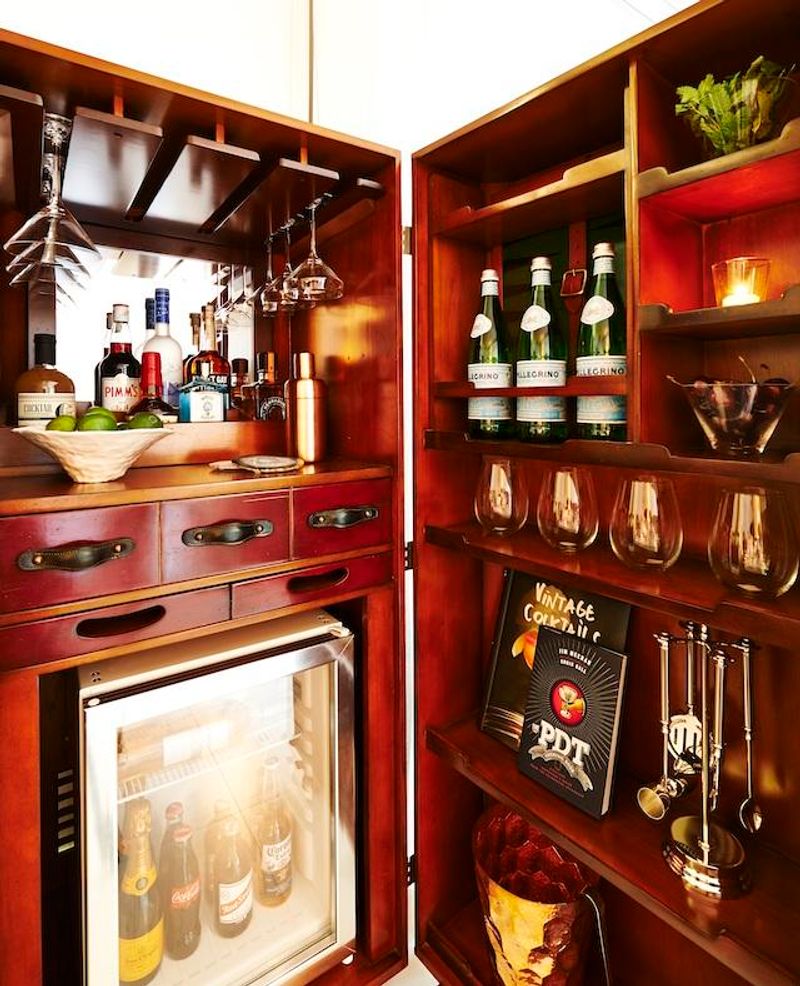
Mini-bars aren’t selling food – they’re selling the fantasy of living like a millionaire. That tiny champagne bottle represents joining an exclusive club, even for just one night. Hotels deliberately stock premium brands to reinforce this luxury feeling. The fancy packaging makes ordinary snacks feel special and worth the premium price. Remember that the same products cost fraction elsewhere without the luxury theater.
4. Vacation Mode Breaks Your Normal Money Rules
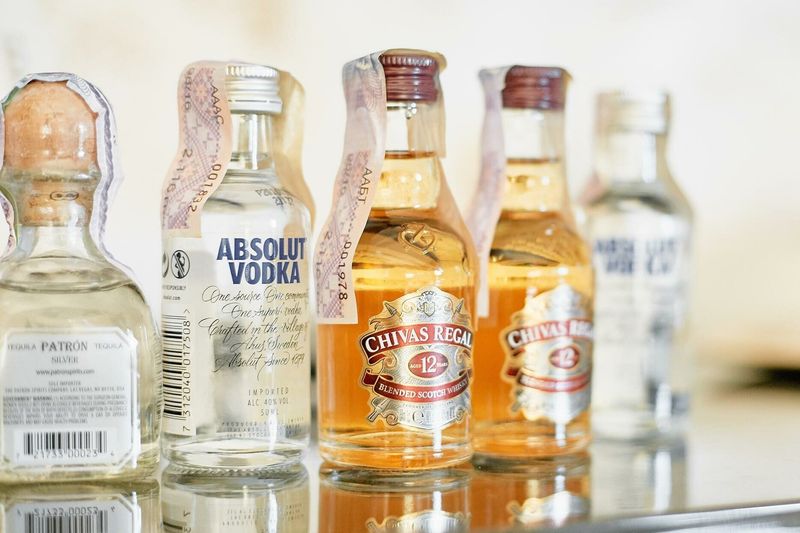
Something magical happens to your wallet when you’re on vacation. Suddenly, a $6 candy bar doesn’t seem outrageous when you’re already spending hundreds on flights and hotels. Your brain shifts into “treat yourself” mode during trips. Normal financial boundaries disappear because you’re already in spending mode for the entire vacation experience. Set mini-bar spending limits before your trip to maintain control over vacation expenses.
5. Scarcity Tricks Your Brain Into Seeing Special Value
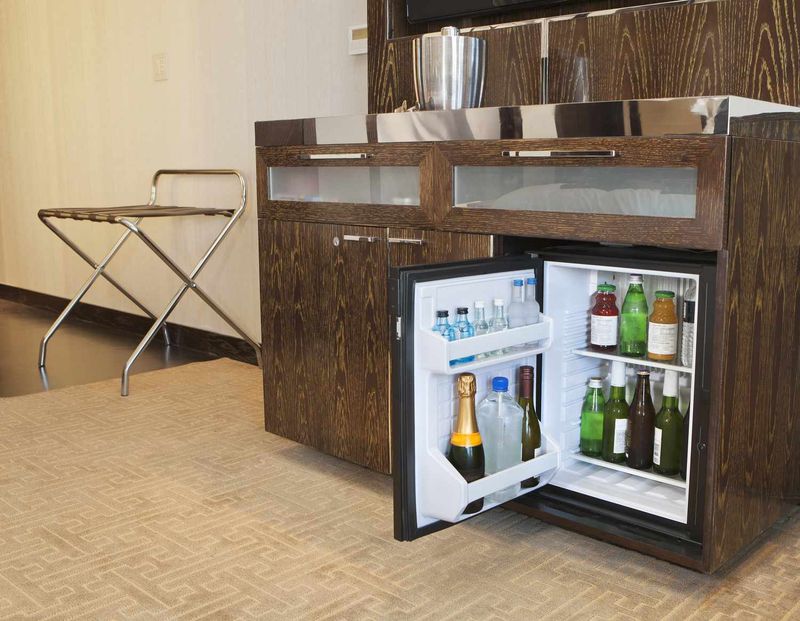
Limited selection creates artificial importance. When only twelve items sit in that mini-fridge, each one feels more valuable than identical products in a crowded grocery store. Your brain interprets the curated selection as premium quality. Scarcity psychology makes people believe rare equals better, even when it’s just convenient placement. Those “exclusive” peanuts are probably the same brand sold cheaply at nearby convenience stores.
6. Opening The Door Triggers Your Reward System
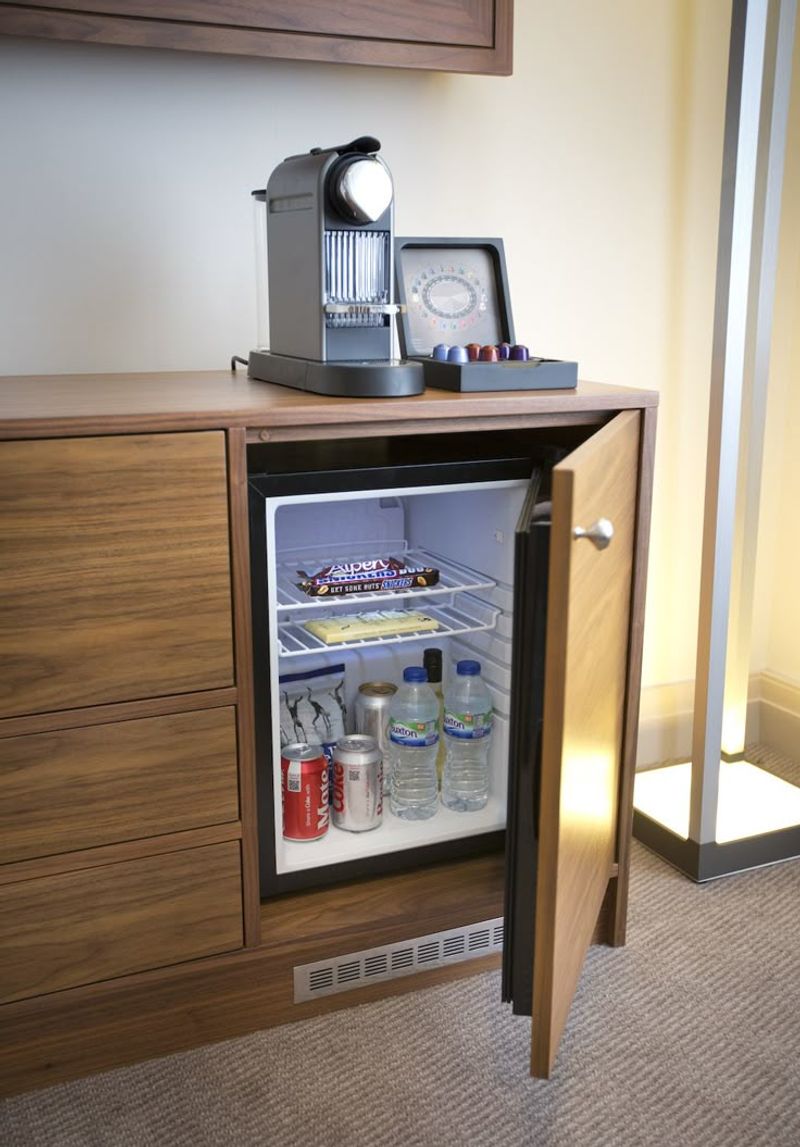
Even browsing without buying gives you a little dopamine hit. Opening that mini-bar door activates the same brain reward pathways as opening presents or mystery boxes. Hotels design mini-bars to look appealing when opened. The interior lighting and perfect product arrangement create a tiny treasure chest effect that feels satisfying to explore. This browsing pleasure often leads to actual purchases through extended exposure to tempting options.
7. Perfect Presentation Suggests You Should Indulge
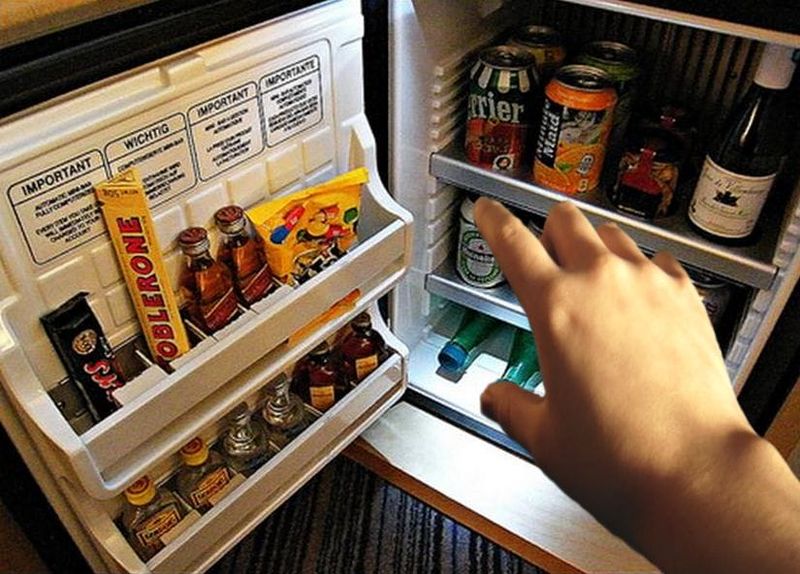
Those aren’t just snacks – they’re props in a luxury theater production. Every bottle and package is positioned to look like part of your premium hotel experience. Professional merchandising makes mini-bar contents appear as amenities rather than overpriced convenience items. The neat arrangement suggests these treats belong in your sophisticated hotel stay. Social proof through presentation convinces guests that consuming these items is normal and expected behavior.
8. Price Anchoring Makes Everything Seem Reasonable
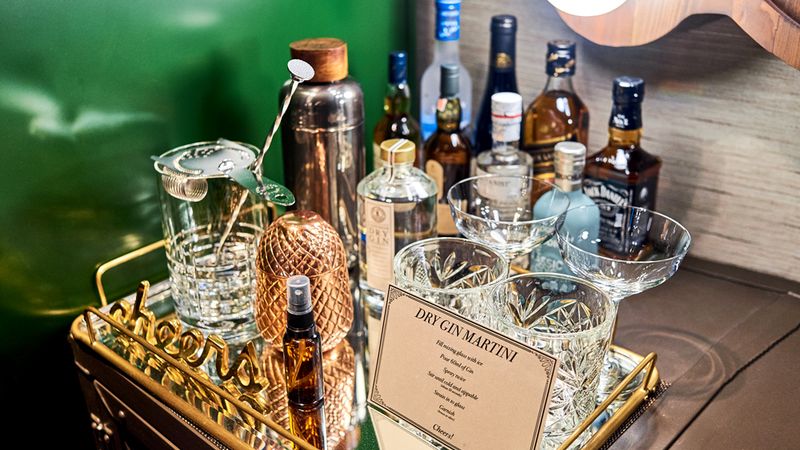
When you’re already paying $200 per night for a room, that $10 Coke feels like pocket change. Your brain uses the big hotel bill as a reference point for all other expenses. This anchoring effect makes mini-bar prices seem proportional to your overall travel investment. Hotels strategically use this psychological bias to justify premium pricing on basic items. Calculate mini-bar prices against normal retail costs, not your hotel bill, for realistic perspective.
9. Secret Indulgence Creates Guilty Pleasure Thrills
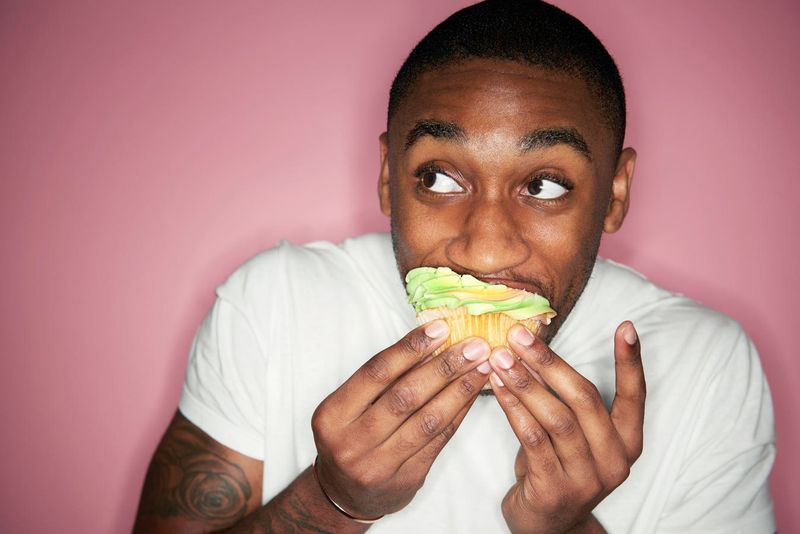
There’s something deliciously rebellious about eating $15 worth of chips in bed at midnight and charging it to your room. Mini-bars tap into our desire for secret, slightly naughty pleasures. The privacy of your room combined with the ease of room service billing creates a perfect storm for indulgent behavior without immediate financial pain. This delayed payment system disconnects the purchase from the immediate sting of spending money.
10. Resisting Temptation Provides Its Own Satisfaction Reward
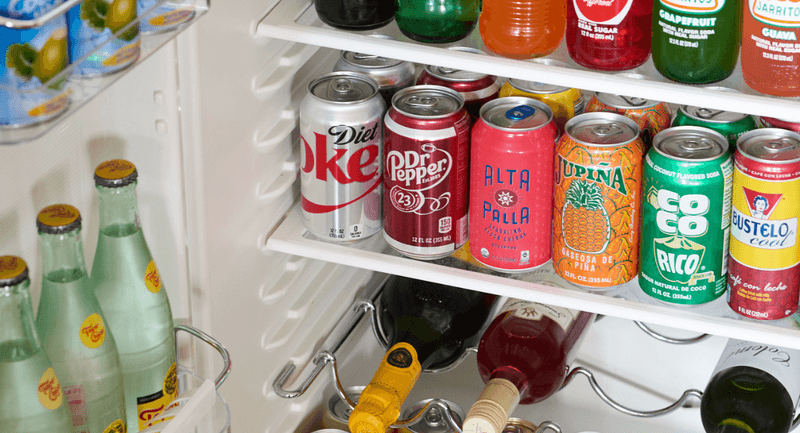
Walking away from the mini-bar gives many people a genuine sense of victory. Saying “no” to overpriced temptation feels like winning a small battle against corporate manipulation. This resistance provides psychological satisfaction and a feeling of financial wisdom. Many travelers report feeling proud when they successfully avoid mini-bar purchases throughout their entire stay. Some guests enjoy the mental challenge of resisting temptation more than they would enjoy the actual snacks.

